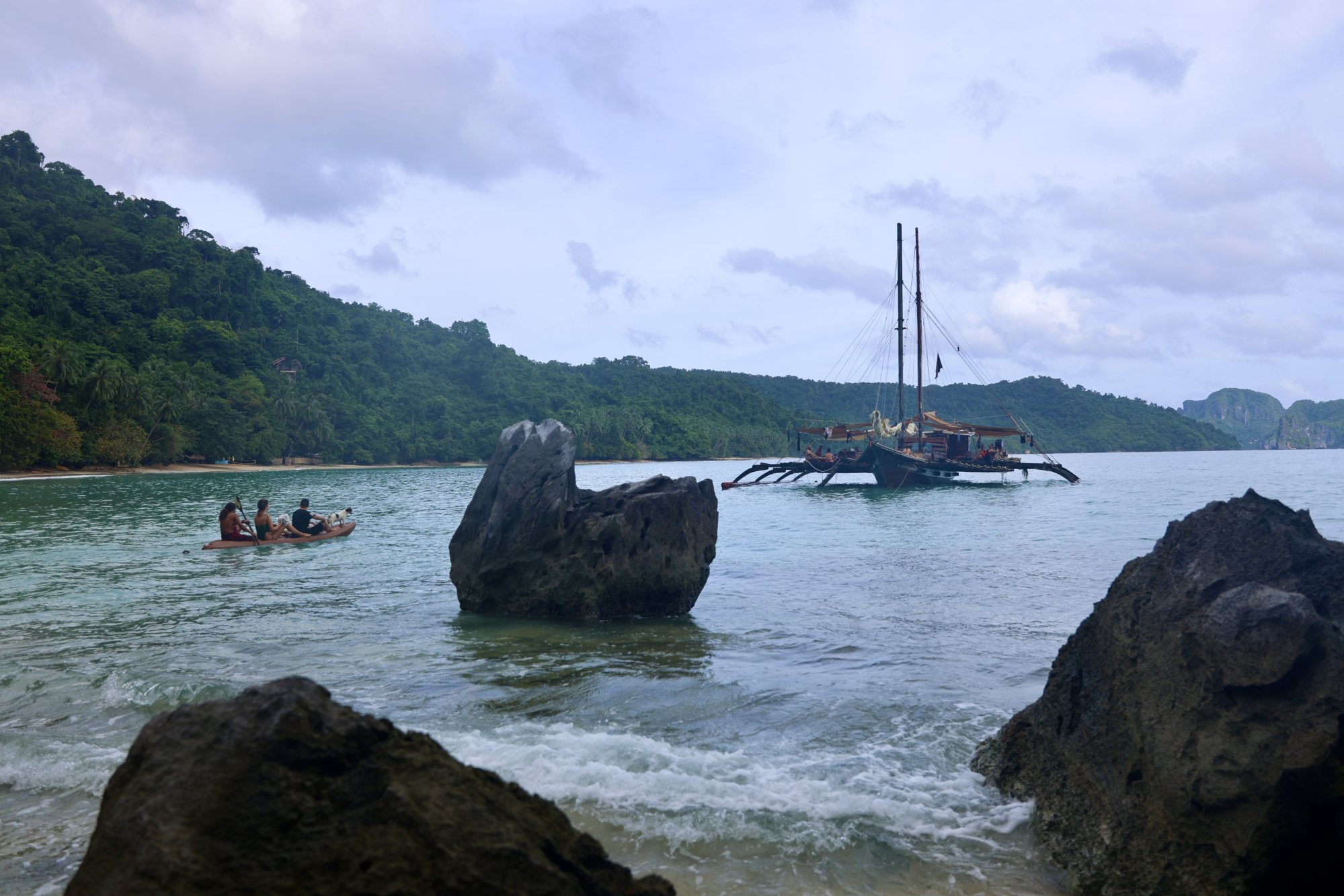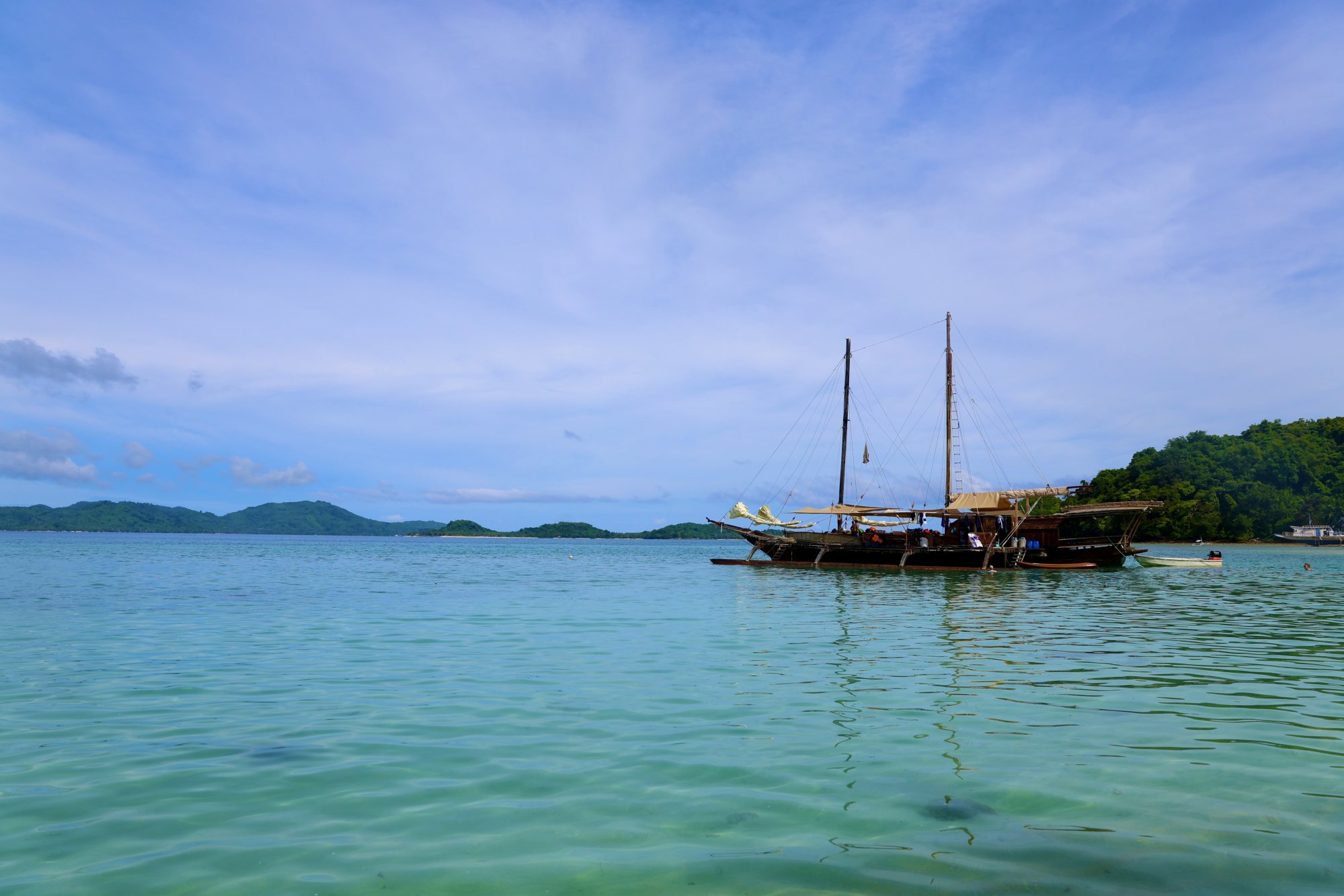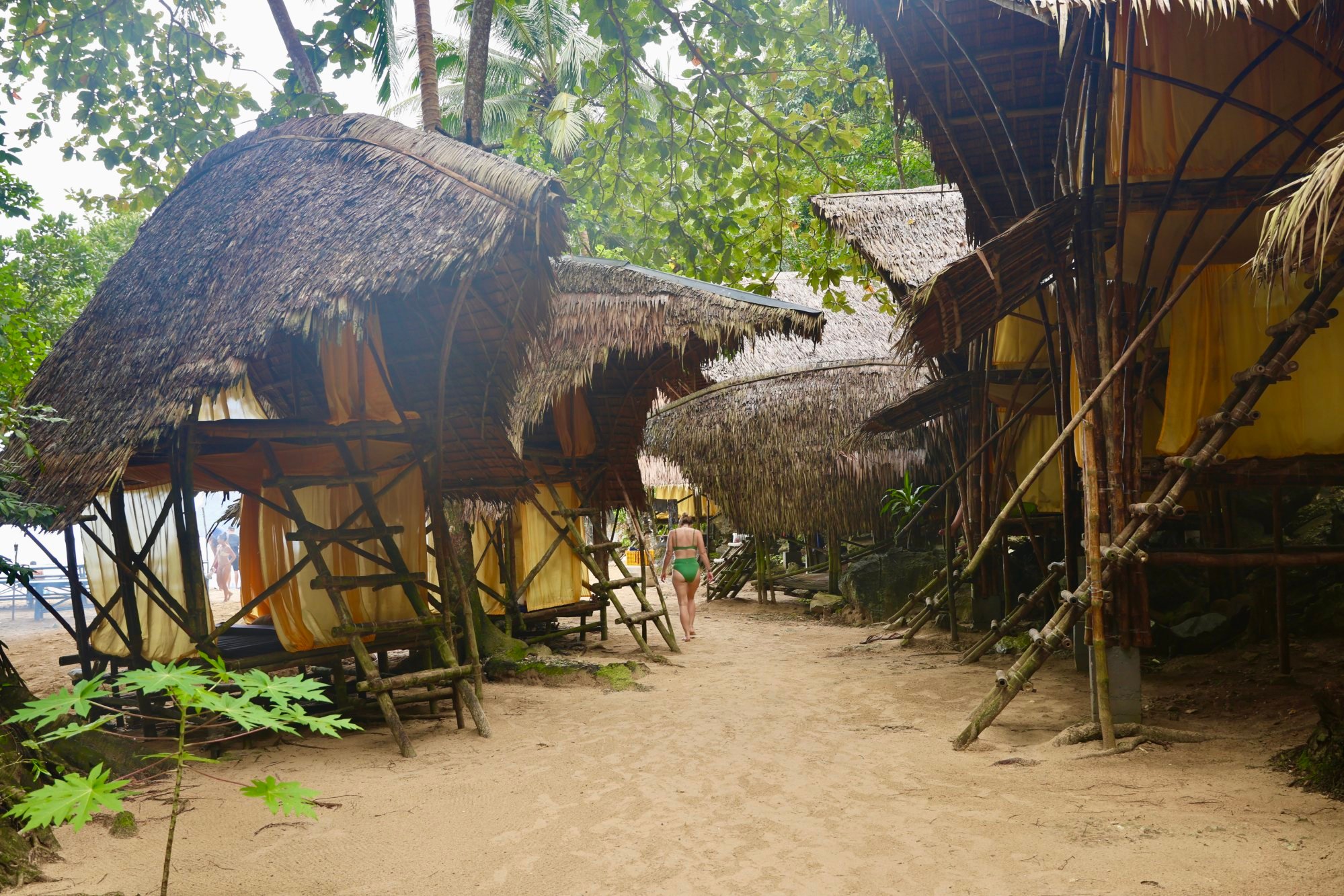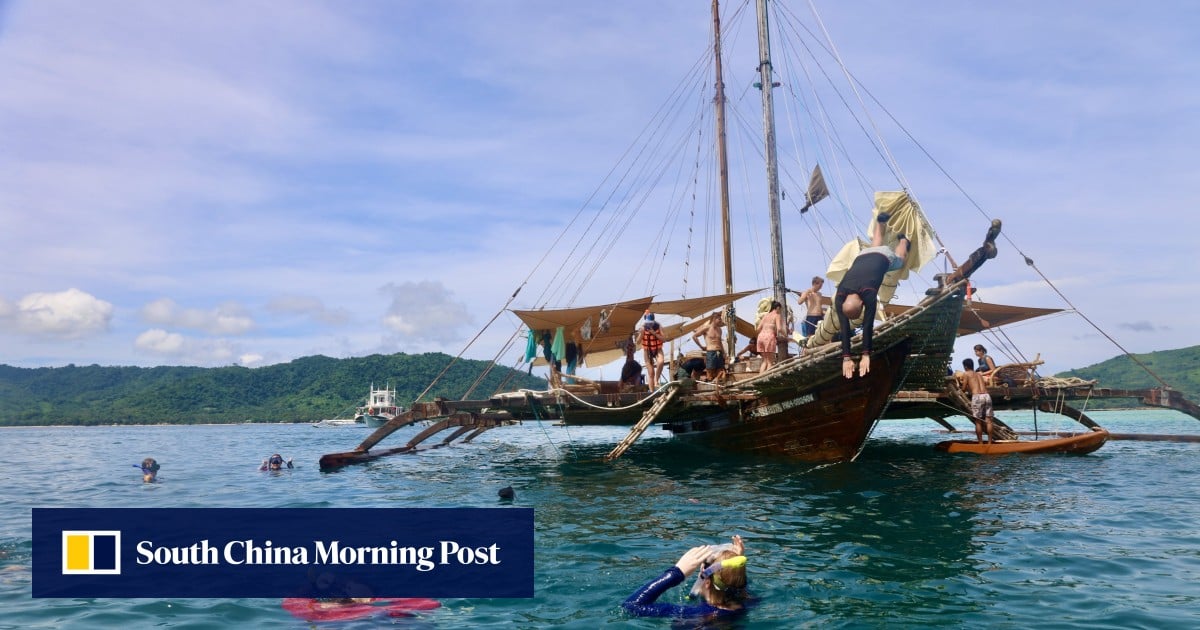At the pre-trip briefing, the guides make it clear that the way Tao hops between islands is not for everyone: there’s no air conditioning, no hot showers, no phone service. That is why these trips are called “expeditions”.

We’re taken from the office in El Nido Town by private jeepney for about an hour to the coast, where we hike through forest before it opens onto a beach.
To board the outrigger, known as a paraw, I must either paddle out on one of Tao’s kayaks or swim up and hope my drybag lives up to its name. This is the last time I will be fully dry for the next three days, thanks to spontaneous and frequent dips in the ocean.
7 of the world’s most spectacular sporting venues, from Italy to China
7 of the world’s most spectacular sporting venues, from Italy to China
Balatik is 74ft (22.5 metres) from bow to stern – the size of a voyaging vessel built to take on the unknown and the dangers that lie beyond the horizon. It’s the type of craft the first people to ever set eyes on the jagged cliffs of Palawan may have used.
She stands tall with two masts and four tan-coloured sails. Her outriggers are thicker than balance beams.
The paraw takes up to 12 guests on each of its mini-voyages, and our first stop is at one of dozens of Tao base camps – beach hideaways, many of which are on thimbles of land and accessible only by sea.
Every camp has distinctive geography: this one is a beach ringed by limestone spires, lush coconut palms hanging over cliffs that drop off into the ocean and hidden lagoons. It has a natural pool the size of a soccer pitch.

As well as a mode of transport, the Balatik is a time machine, ferrying us back to childhood bliss; guests cannonball off its outriggers, then make a beeline for the camp’s tree swing, one by one launching themselves back into the ocean.
The 12-strong Palawan crew call themselves the Lostboys, and the way they rally everyone for singalongs and tree climbing makes them feel more like camp counsellors than glamping guides.
Once back on board, hours are spent braiding palms, strumming the ukulele and playing games of balance on the outriggers. I swing from a ladder attached to a mast, leaning into the pendulum motion.

When one of the hosts belts out, “If you like pina coladas … we don’t have any on board!”, the boat erupts in laughter. Instead we dig into fresh yellow watermelon.
Balatik in the local Hiligaynon language, means “constellation of Orion”, which to early islanders looked like a hunting trap; the transformation of a star system into a map depends on perspective.
We dock at another secret cove, this one deeper than the others. Nowhere does the water’s neon tint turn the menacing black of the deep sea, even though the limestone cliffs plunge straight into the water and fade out below the surface like sunken ethereal skyscrapers.
Schools of tiny silvery fish swirl around me as I swim under the boat.
We spy a sea turtle and, at the direction of the crew, hold our breath and let it pass unmolested. There is no mad rush for cameras or the sharp elbows of people fighting for a glimpse.

Some of the Lostboys appear on the Balatik’s kayaks with buckets of sea urchins. They gather the group and we stare into fluorescent innards and stroke the tongue-like texture of the uni, before having a taste.
Eventually, we have to sail off to our overnight camp. After anchoring beyond a rock outcrop in Bacuit Bay nicknamed the “shark tooth”, we are assigned to our bamboo huts.
Each two-storey dwelling is wide enough for two mats to fit snugly side by side. Their convex roofs create a sweeping spaceship silhouette.

Nothing but a curtain and mosquito net separates me from the untamed jungle, with monkeys poking their heads out of the canopy.
The staff have warned us not to go skinny dipping at night; stingrays sleep in the shallows just off the beach.
As night sets in, we finish a feast of fresh fish, tropical salads and heaps of garlic rice. Curious fireflies descend, making it seem as though the stars have come down to settle in my hair; as though the Balatik has delivered us into our own remote constellation.

